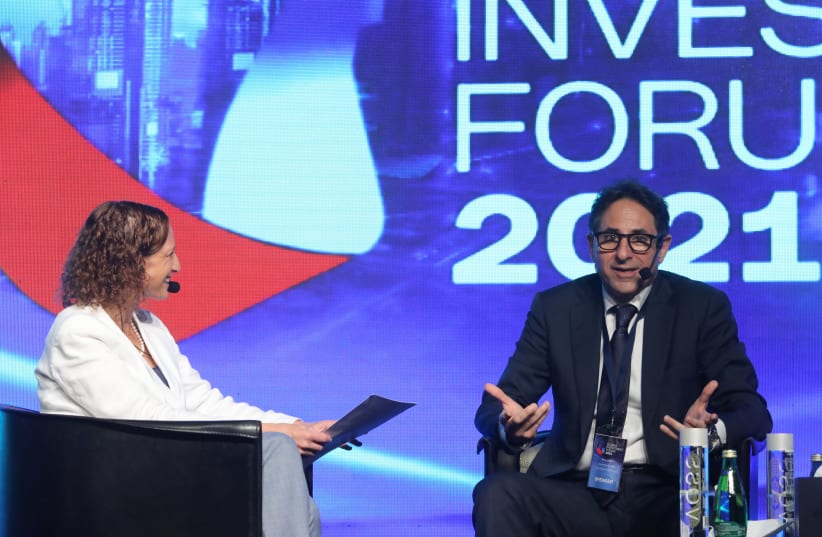The United Arab Emirates has more than 35 free-trade zones offering many advantages for growing businesses, said Ramy Jallad, CEO of the Ras Al Khaimah Economic Zone.
Jallad spoke at Wednesday’s Global Investment Forum in Dubai, sponsored by The Jerusalem Post and the Khaleej Times.
“Here in the United Arab Emirates, we’re experts at free-trade zones. We’ve been doing them for a very long time. A free-trade zone is a geographic area within the country that has its own regulations and bylaws so that international companies or foreign investors from all over the world can come and conduct trade, whether inside the UAE or to export to the rest of the world,” Jallad said.
“A lot of international companies from all over the world use us as a bridge to conduct trade, including technology companies, manufacturing, agriculture and pharmaceuticals. People come to free-trade zones because the transparency allows them to conduct trade as if they were outside of the country. You get 100% ownership, which is different than on the mainland; you get repatriation of all the profits; and you don’t have corporate tax or income tax.
“Whether you’re starting out as an SME (small- or medium-sized enterprise) or you’re coming in as a major manufacturer, you get a variety of services, all located in one area, and the services that are provided are to allow the investors to just focus on their core business.”
Jallad noted that every one of the seven emirates has at least one free-trade zone, and that many have different specialties, such as technology or manufacturing.
How can Israeli companies get involved?
“We’ve opened up our doors for different types of companies, like SMEs, hi-tech, and agro companies,” Jallad said.
“We’re already in the pharma space with a few Israeli companies, and we have people on the ground in Israel, talking to these large corporations.
“We’re finding that a lot of Israeli companies want a lot of matchmaking in the country, with companies in the supply chain or agents or distributors, and they just don’t want to move all at one time. So we’re doing a lot of matchmaking and establishing their subsidiary offices here so that they can start to conduct the trade and understand the market. That’s where the plug and play aspect comes in; when you have somebody else focused on the administration work.
“We’re focusing not on just activities or businesses, but on the supply chain,” Jallad concluded. “We’re offering perfect ecosystems for investors so that they can conduct trade.”
